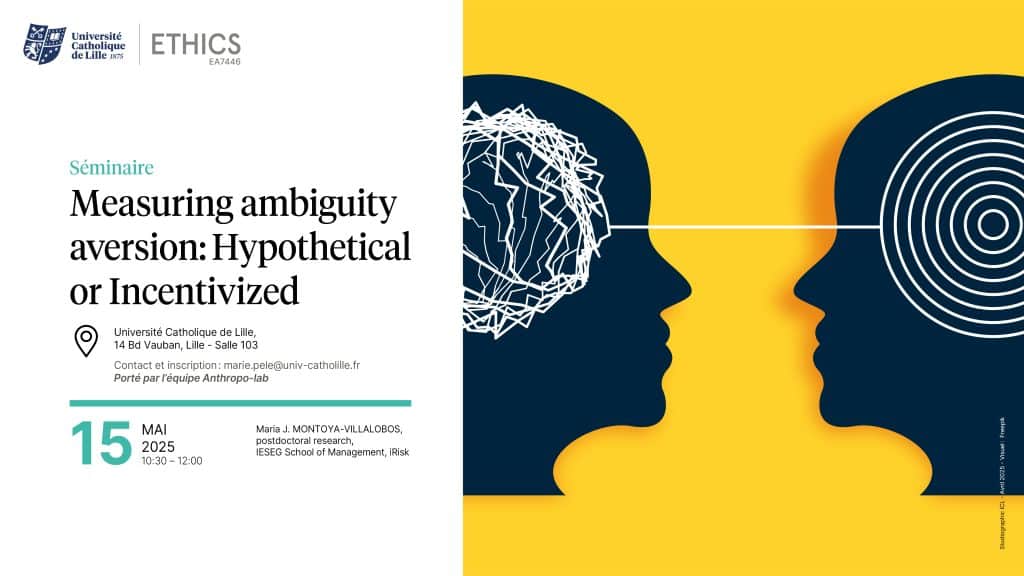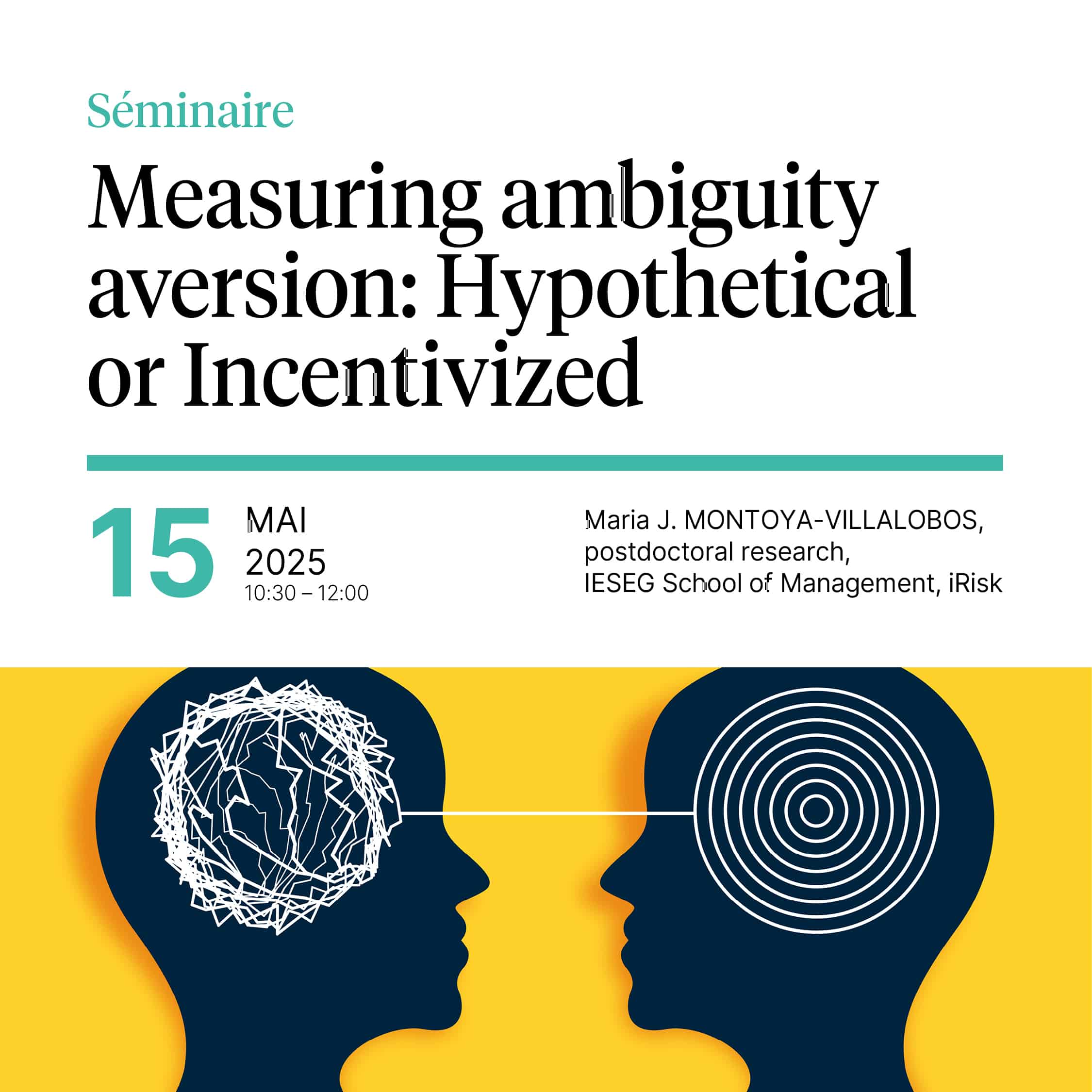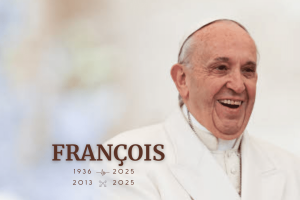Anthropo-lab seminar “Measuring ambiguity aversion: Hypothetical or Incentivized”
Anthropo-lab seminar “Measuring ambiguity aversion: Hypothetical or Incentivized”

👁 “Measuring ambiguity aversion: Hypothetical or Incentivized” with Maria J. Montoya-Villalobos, postdoctoral research, IESEG School of Management, iRisk
📧Contact and registration : marie.pele@univ-catholille.fr
👉Biography : I am a postdoctoral researcher at IESEG School of Management at the iRisk research center. My research lies at the intersection of environmental economics, behavioral economics, and the economics of uncertainty. I study how individuals make decisions under uncertainty and how they shape responses to pro-environmental behaviors and environmental public policies. My work combines theoretical modeling, grounded in public economics and decision theory, with experimental economics.
📃Presentation : Measuring ambiguity preferences using monetary incentives is both costly and time-consuming. We propose and test a non-incentivized, survey-friendly method for eliciting ambiguity attitudes. Our approach presents participants with binary choices between bets on known and unknown urns a la Ellsberg, followed by a rating of the strength of their preference for the chosen option. We compare ambiguity preferences elicited through our hypothetical method with those obtained via incentivized matching probabilities, first in a laboratory experiment with students, and then in an online experiment with a large, representative sample of French population. We show that the hypothetical tasks successfully capture ambiguity aversion, but they fail to capture the other component of ambiguity attitudes, ambiguity-generated insensitivity. These results contribute new evidence on the validity of non-incentivized measures of economic preferences in the important domain of ambiguity.





